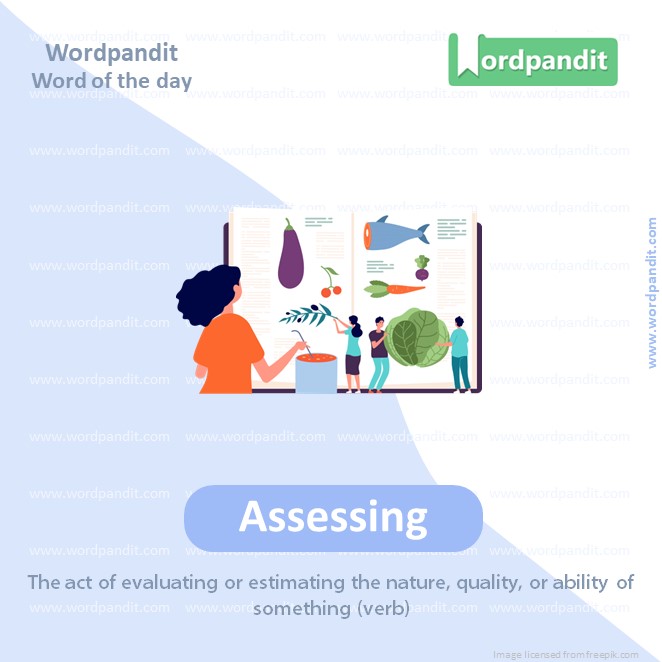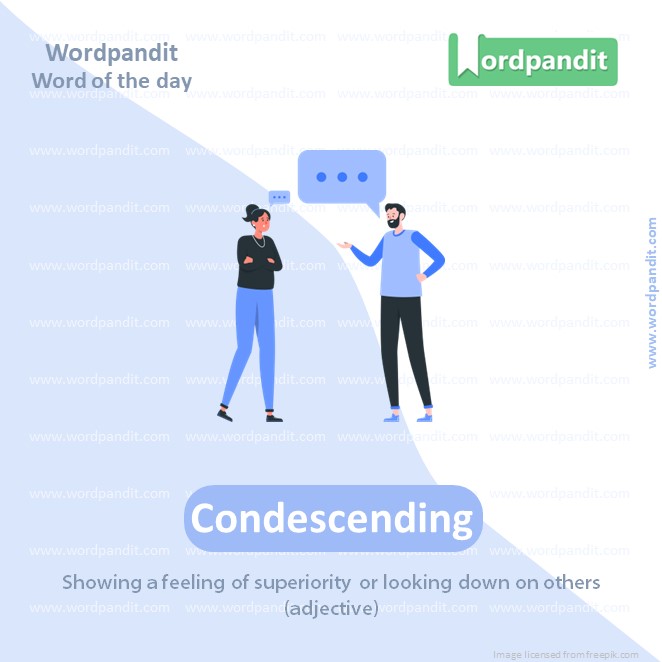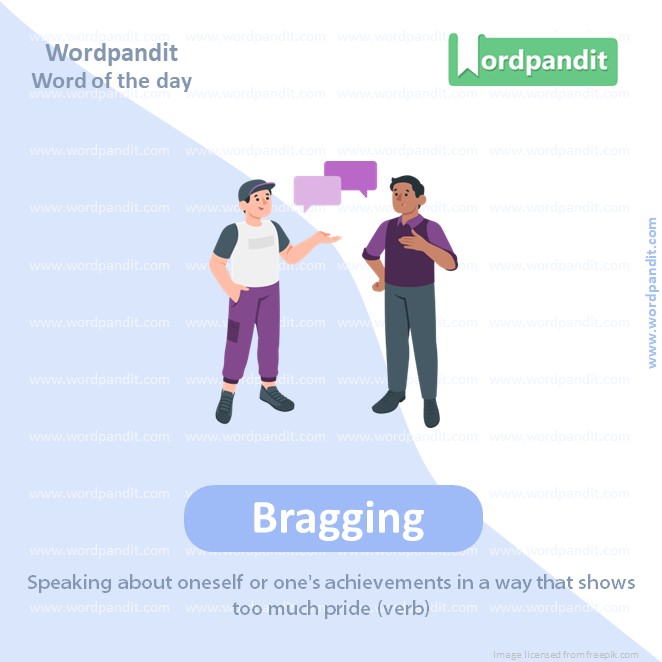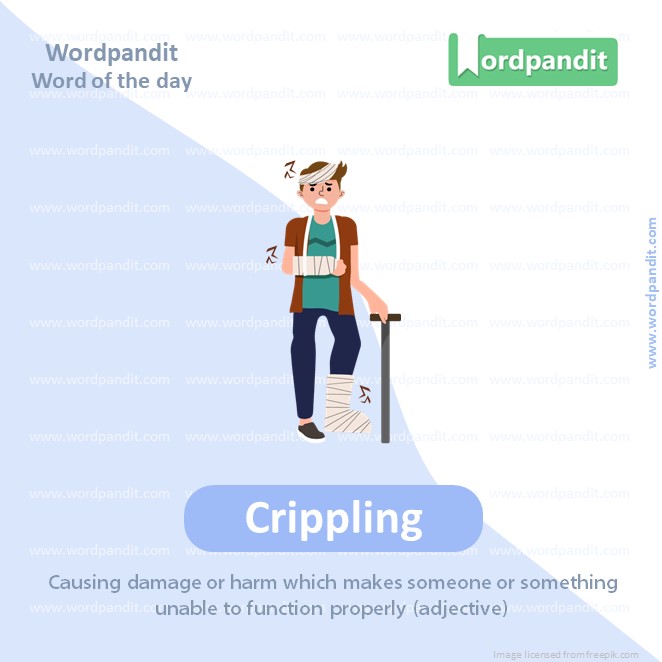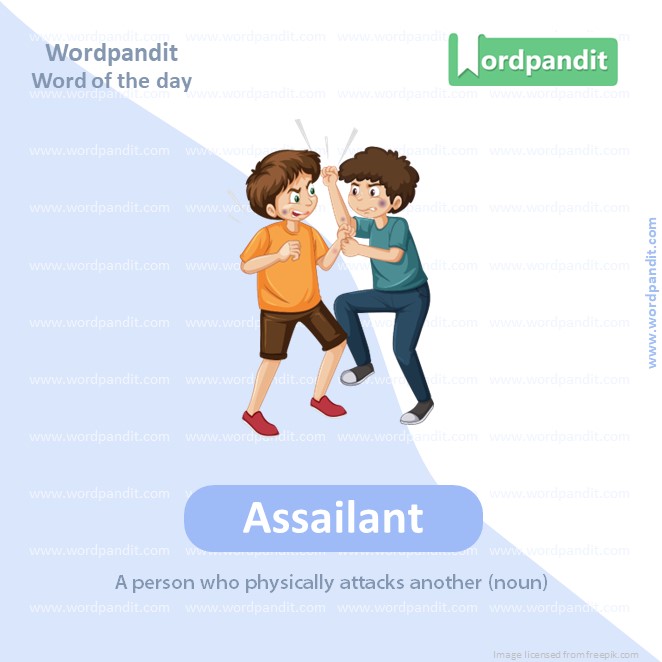Daily Vocabulary from International Newspapers and Publications
Expand Your Vocabulary with Wordpandit’s Global Vocabulary Hub
At Wordpandit, we are committed to helping you develop a truly global vocabulary by drawing from some of the most respected international publications. This section is designed to keep you ahead of the curve by introducing you to words that define global conversations and trends.
The Power of Global Sources
To help you think and communicate on a global scale, we curate vocabulary from renowned international sources, such as:
- The New York Times
- The Washington Post
- BBC
- The Guardian
- The Economist
- Scientific American
- Psychology Today
- And many more...
Stay Global, Stay Competitive
Our daily updates from international publications ensure you are consistently exposed to new words that reflect global news and developments, making sure your vocabulary is not only current but also globally relevant.
Enhance Your Global Perspective
Whether you’re preparing for international exams, aiming to excel in global business communication, or want to enhance your language skills for personal growth, Wordpandit offers the resources you need to thrive in a global context.
Effective Learning, Global Reach
Our learning methodology combines global examples, memory aids, and interactive activities, allowing you to internalize new words effectively and apply them in real-world scenarios.
Begin Your Global Vocabulary Journey Now!
Why Choose Wordpandit?
Practical Learning: Focus on words you'll actually encounter in real-world reading, enhancing your comprehension and communication skills.
Diverse Content: From current affairs to scientific breakthroughs, our varied sources expose you to vocabulary across multiple domains.
Effortless Integration: Make Wordpandit a part of your daily routine. Just a few minutes each day can significantly boost your lexicon over time.
Your Path to Vocabulary Mastery
- Visit our Daily Vocabulary section regularly
- Explore new words and their usage in context
- Practice incorporating these words into your own writing and speech
- Track your progress as your vocabulary expands
Start Your Journey Today
Embark on your vocabulary enhancement journey with Wordpandit. By consistently engaging with our daily posts, you'll build a robust vocabulary that serves you well in academic, professional, and personal contexts.
Remember, a word a day keeps linguistic limitations at bay. Make Wordpandit your daily companion in the quest for vocabulary excellence!
WORD-1: Assessing
Context:
"That does not mean we should shrink from honestly assessing performance, including economic performance, under Mr. Trump as well as under Mr. Biden." - New York Times
Explanatory Paragraph:
The word "assessing" refers to the process of carefully evaluating or judging something. When someone is assessing a situation, performance, or value, they are examining it thoroughly to form an informed opinion or conclusion. In this context, it means evaluating the economic performance during the administrations of both Mr. Trump and Mr. Biden without bias or hesitation.
Meaning: To evaluate or estimate the nature, ability, or quality of something (verb)
Pronunciation: uh-SESS-ing
Difficulty Level: ⭐⭐ Beginner to Intermediate
Etymology: From Latin 'assessare', meaning 'to sit beside' (as a judge), evolved through Old French 'assesser' to modern English 'assess'.
Prashant Sir's Notes:
“Assessing” is a core academic and analytical word—widely used in essays, business reports, and evaluations. It often precedes a decision or recommendation. Learn it well; it's part of the language of critical thinking.
Synonyms & Antonyms:
Synonyms: evaluate, appraise, judge, review, examine
Antonyms: ignore, neglect, overlook, disregard
Usage Examples:
- The teacher is assessing each student's progress before the final exams.
- We are currently assessing the damage caused by the storm.
- Before buying a house, it's essential to assess its market value.
- Managers must assess employee performance fairly and regularly.
Cultural Reference:
"Assessing risk is not just about avoiding failure; it's about enabling success." - A common theme in business leadership seminars and TED Talks.
Think About It:
When was the last time you assessed your own strengths and weaknesses honestly? How might doing so change your growth path?
Quick Activity:
List three decisions you made this week. For each, write down what criteria you used to assess the options before choosing.
Memory Tip:
Think of "assess" as "a test" — both involve checking and evaluating. If you're assessing something, you're putting it to the test!
Real-World Application:
In workplaces, assessment tools are used to measure employee performance, customer satisfaction, and project outcomes. Learning how to assess well is vital in roles like management, consulting, education, and policymaking.
WORD-2: Condescending
Context:
"Democrats should have learned by now condescending to Trump voters will not win many of them over." - New York Times
Explanatory Paragraph:
The word "condescending" describes an attitude where someone talks or behaves in a way that shows they think they are superior to others. It implies looking down on others or treating them as if they are less intelligent or capable. In the context of politics, being condescending often means dismissing others' opinions or concerns as unworthy, which can create resentment instead of persuasion.
Meaning: Showing a superior attitude toward others; patronizing (adjective)
Pronunciation: kon-duh-SEND-ing
Difficulty Level: ⭐⭐⭐ Intermediate
Etymology: From Latin *condescendere*, meaning "to stoop together" – evolved to mean "stooping to someone else's level with a sense of superiority."
Prashant Sir's Notes:
This word often appears in debates and discussions where tone and attitude matter. "Condescending" is a red flag word—if someone calls your tone condescending, it means they feel belittled. Pay attention to it in interviews, debates, or while giving feedback.
Synonyms & Antonyms:
Synonyms: patronizing, snobbish, superior, haughty, disdainful
Antonyms: respectful, humble, modest, considerate
Usage Examples:
- Her condescending tone made it clear she didn’t take my opinion seriously.
- The manager spoke to the staff in a condescending way that hurt morale.
- He tried to help, but his advice came off as condescending.
- People often react negatively when they feel they are being condescended to.
Cultural Reference:
"Don’t be condescending to unskilled labor. Try it for a half a day first." — Mike Rowe, host of *Dirty Jobs*, in defense of blue-collar workers.
Think About It:
Why do you think people sometimes adopt a condescending tone without realizing it? What effect does it have on communication and relationships?
Quick Activity:
Write a short dialogue between two people: one giving advice in a helpful tone, and another giving the same advice in a condescending tone. Reflect on how tone changes meaning.
Memory Tip:
“Condescending” = “Coming down” on someone. Remember it as someone *descending* from a high place to talk down to you.
Real-World Application:
In customer service, teaching, and leadership, avoiding a condescending tone is crucial for building trust and rapport. Being aware of your tone and word choice helps maintain respectful and effective communication.
WORD-3: Bragging
Context:
"Whenever a candidate boasts, like DeSantis, that he’s visited all 99 counties in Iowa, you hear a shriek of desperation mixed in with the bragging." - New York Times
Explanatory Paragraph:
"Bragging" refers to talking proudly about something you’ve done or achieved—often in a way that can seem boastful or annoying to others. While it can reflect genuine accomplishment, bragging is usually associated with an inflated sense of self-importance or a desire to impress. In the given context, the bragging reflects not just pride, but possibly a hint of desperation to stand out.
Meaning: Talking about one's achievements or possessions in a self-satisfied and boastful way (verb/noun)
Pronunciation: BRAG-ing
Difficulty Level: ⭐ Beginner
Etymology: Originated from Middle English *braggen*, meaning "to boast or show off."
Prashant Sir's Notes:
Bragging is one of those words that instantly carries a tone—negative in most contexts. It's a great word to remember when learning tone and attitude in writing. Compare it with “sharing” or “stating”—subtle differences matter!
Synonyms & Antonyms:
Synonyms: boasting, showing off, flaunting, gloating, swaggering
Antonyms: modesty, humility, understatement, downplaying
Usage Examples:
- He kept bragging about his promotion, even though no one asked.
- Social media often turns into a platform for bragging rather than sharing.
- She wasn’t bragging—she was just proud of her hard work.
- Bragging about money rarely wins people’s respect.
Cultural Reference:
"It ain't bragging if you can back it up." – Often attributed to baseball legend Dizzy Dean, this quote captures the cultural debate around bragging and confidence in American sports.
Think About It:
Is there a difference between confidence and bragging? Where do we draw the line, and who decides?
Quick Activity:
Write two short sentences: one that shows bragging and one that shows confidence. Compare the tone and word choice.
Memory Tip:
Think of a “brag” as a “bragging dragon” breathing out loud words of pride—too much fire, not enough humility!
Real-World Application:
In job interviews or networking events, it’s important to highlight your achievements without bragging. Focus on facts and results, and let your confidence show through humility and clarity.
WORD-4: Crippling
Context:
"Gonna ask you to give the systems more time to recover from the crippling effects of the pandemic." - New York Times
Explanatory Paragraph:
The word "crippling" is used to describe something that causes severe damage or weakness, often to the point of making recovery extremely difficult. It can apply to physical, emotional, economic, or systemic conditions. In the given sentence, "crippling effects" refers to the intense and long-lasting harm the pandemic caused to systems—like healthcare, education, and the economy—making it hard for them to function normally again.
Meaning: Causing severe damage, weakness, or dysfunction (adjective)
Pronunciation: KRIP-ling
Difficulty Level: ⭐⭐⭐ Intermediate
Etymology: From the verb *cripple*, dating back to Old English *cryppan*, meaning "to bend or deform."
Prashant Sir's Notes:
“Crippling” is a high-impact word—emotionally charged and visually strong. It’s especially common in journalism and policy writing when describing damage (e.g., “crippling debt,” “crippling sanctions”). Use it when you want to emphasize the severity of a problem.
Synonyms & Antonyms:
Synonyms: devastating, paralyzing, disabling, ruinous, overwhelming
Antonyms: manageable, minor, harmless, bearable, curable
Usage Examples:
- The company suffered a crippling loss after the data breach.
- Crippling anxiety can prevent people from enjoying everyday activities.
- Sanctions had a crippling effect on the country’s economy.
- The storm left behind crippling damage to infrastructure.
Cultural Reference:
During the early COVID-19 crisis, leaders and economists worldwide spoke about the “crippling effect” of lockdowns on global supply chains and job markets—a term repeated frequently in news and policy documents.
Think About It:
Can a “crippling” event sometimes lead to positive change or reform in the long term? What are examples of systems that recovered stronger after being crippled?
Quick Activity:
List three "crippling" challenges the world has faced in the last decade. Then, write how each challenge affected people or systems.
Memory Tip:
Think of "crippling" as something that grabs your legs and won’t let you walk—it halts your progress, just like a crisis can stop a system from functioning.
Real-World Application:
"Crippling" is commonly used in business, healthcare, and global affairs to describe serious setbacks. It’s a powerful word to convey urgency and the need for recovery or reform in speeches, articles, or presentations.
WORD-5: Assailant
Context:
"Thanks to the inaction of Republican legislators, there is nothing to stop the next would-be assailant from doing the same thing." - New York Times
Explanatory Paragraph:
The word "assailant" refers to someone who violently attacks another person. It is most commonly used in the context of physical or criminal attacks. In the quoted sentence, the term refers to a potential future attacker, implying a concern that without preventive laws or action, violence could repeat. This word carries serious weight and is often used in news reporting, police statements, and legal documents.
Meaning: A person who physically attacks another (noun)
Pronunciation: uh-SAY-lunt
Difficulty Level: ⭐⭐⭐ Intermediate
Etymology: From Latin *assilire*, meaning “to leap upon,” via Old French *assaillant*, the present participle of *assaillir* (“to attack”).
Prashant Sir's Notes:
“Assailant” is a news-heavy word, often found in crime reports and headlines. It’s a formal and powerful alternative to “attacker.” Be mindful of tone and seriousness when using it—this word signals violence and urgency.
Synonyms & Antonyms:
Synonyms: attacker, aggressor, invader, offender, assaulter
Antonyms: victim, defender, protector, guardian
Usage Examples:
- The assailant fled the scene before the police arrived.
- Security footage helped identify the assailant within hours.
- Police are still searching for the unknown assailant involved in the attack.
- In court, the witness pointed directly at the assailant.
Cultural Reference:
In many true crime documentaries, the word “assailant” is frequently used to describe the unknown attacker. For instance, in Netflix’s *The Night Stalker*, the identity of the assailant was a central mystery until his capture.
Think About It:
What role does language—like using “assailant” instead of “person” or “attacker”—play in shaping public perception of crime and safety?
Quick Activity:
Look up three news headlines from trusted sources that use the word “assailant.” Summarize the situation in each and reflect on how the word sets the tone.
Memory Tip:
Think of “assailant” as someone who *assails*—the one who initiates an assault. The “-ant” ending marks them as the actor (like "participant" or "assistant").
Real-World Application:
Understanding words like “assailant” is crucial for interpreting news, legal cases, or safety instructions. It helps distinguish between different roles in an incident, especially in law enforcement, journalism, and security fields.



